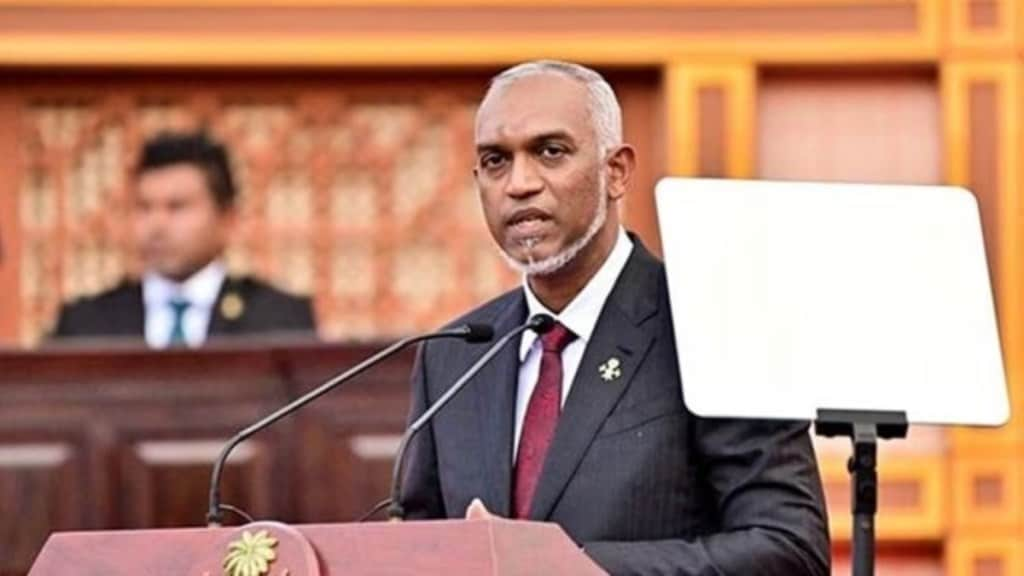Maldives new president Mohamed Muizzu’s formal request to India concerning the withdrawal of its military presence from the island nation might appear a setback to the latter’s efforts to counter the growing influence of China. Maldives is a key maritime neighbour in the Indian Ocean and has a special place in India’s vision for Security and Growth for All in the Region (SAGAR) and Neighbourhood First policy. As the Indian Ocean is an area where the Sino-Indian rivalry is perhaps the keenest, security interests obviously constitute an important component of our long-standing engagement with the Maldives. India’s defence minister Rajnath Singh visited the island nation in May and handed over a fast patrol vessel and landing craft. The exact number of Indian military personnel is not known but reports indicate there are 77 personnel to manage two helicopters, Dornier aircraft and for maintenance and engineering.
India’s earth sciences minister Kiren Rijiju, who attended Muizzu’s swearing in ceremony, later met with the new president to discuss this issue of military personnel who are present for operating aircrafts for medical evacuation and counter-drug trafficking purposes. According to Indian government officials, it was “agreed” that “the two governments would discuss workable solutions for continued cooperation” through the use of these platforms as this “serves the interests of the people of Maldives”. If this version is indeed true, it would suggest a less dramatic outcome to the formal request to withdraw Indian military personnel. Perhaps of far greater concern is the pro-China tilt of the new president who has stated in interviews that the Belt and Road Initiative provides a much-needed opportunity to take the island nation forward and was laudatory of the China-Maldives Friendship Bridge which connects the capital, Male, with the neighbouring island of Hulhumale. India of course cannot match the dragon’s cheque book diplomacy but it has also contributed to infrastructure development in the Maldives.
A case in point is the fresh line of credit of $400 million and a grant of $100 million to help build a sea bridge to connect three islands with the capital Male, which will generate employment and strengthen the economy. India’s aid is transparent and serves the developmental interests of Maldives. India has contributed substantially in areas like people’s welfare, humanitarian assistance and disaster relief. India has been the first responder for the Maldives notably during the coup attempt in 1988, tsunami of 2004 and drinking water crisis in 2014. During the Covid-19 pandemic, India sent in rapid response medical teams and supplied essential medicines under Operation Sanjeevani. Similarly, during the last five years, more than 450 multi-faceted missions have been carried out to safeguard the maritime security of Maldives.
India must continue to step-up development cooperation and engage with the Maldives. These foster interdependencies that cannot be impacted by the changing political complexion of the new regime. Muizzu is only a proxy for the pro-China predecessor, Abdullah Yameen, who was in power between 2013 and 2018 and is now jailed for corruption. Barring this period, the regimes in the Maldives have been in favour of greater engagement with India. The ebbs and flows of the China factor in the long arc of Indo-Maldives relations is perhaps the best indicator that there is no real setback to India’s efforts to defend its sphere of influence in the Indian Ocean and the South Asian region.

